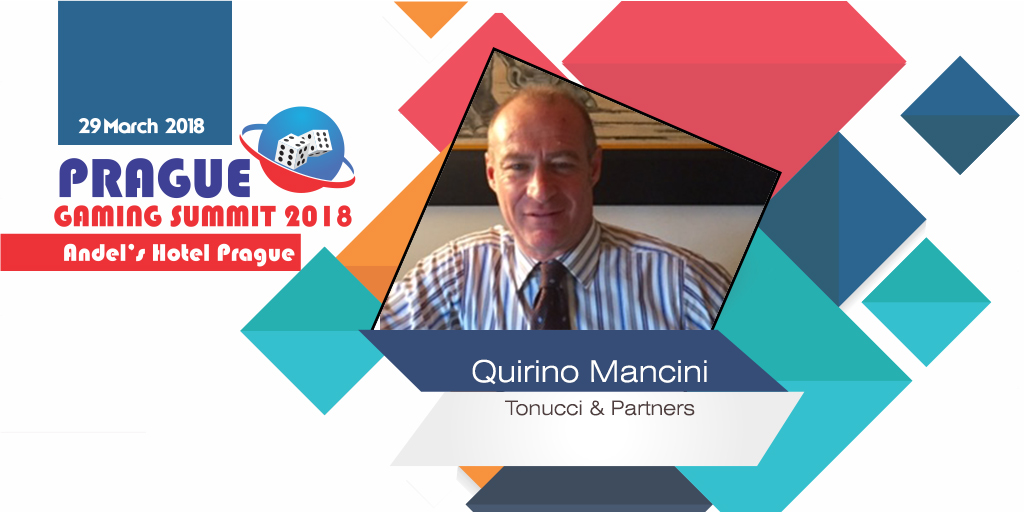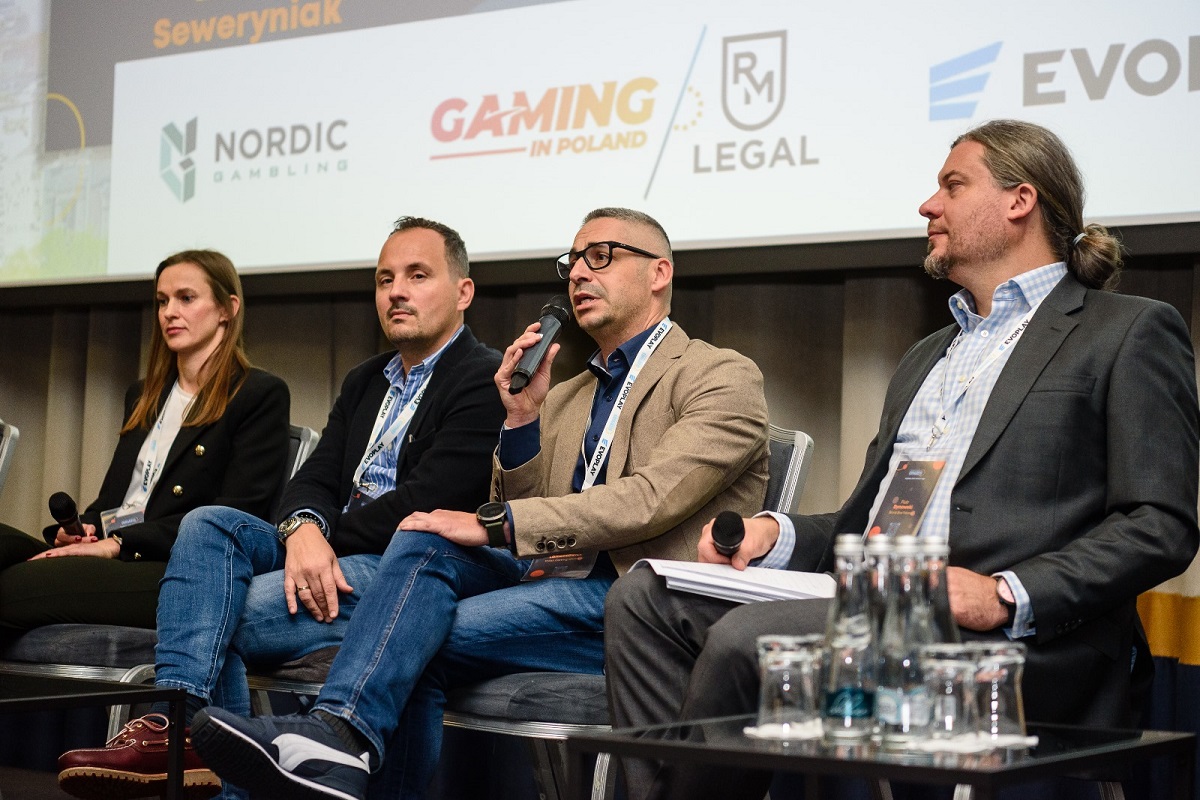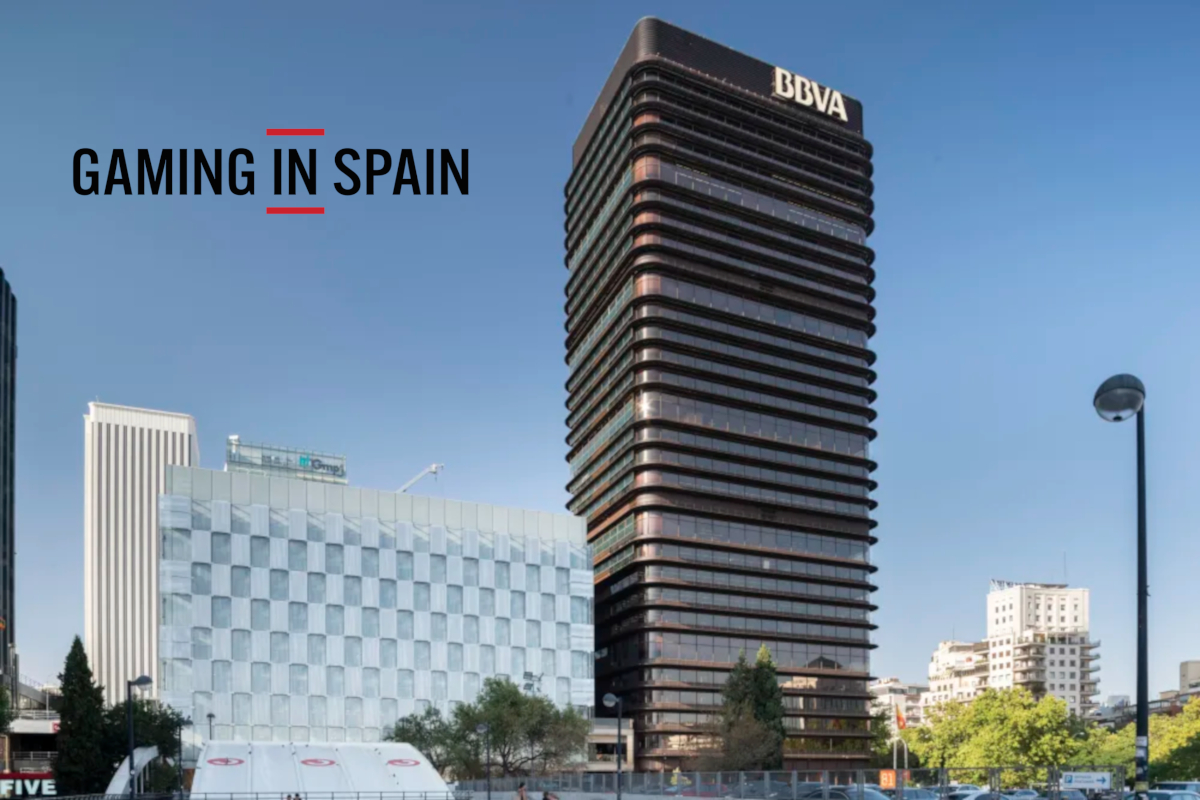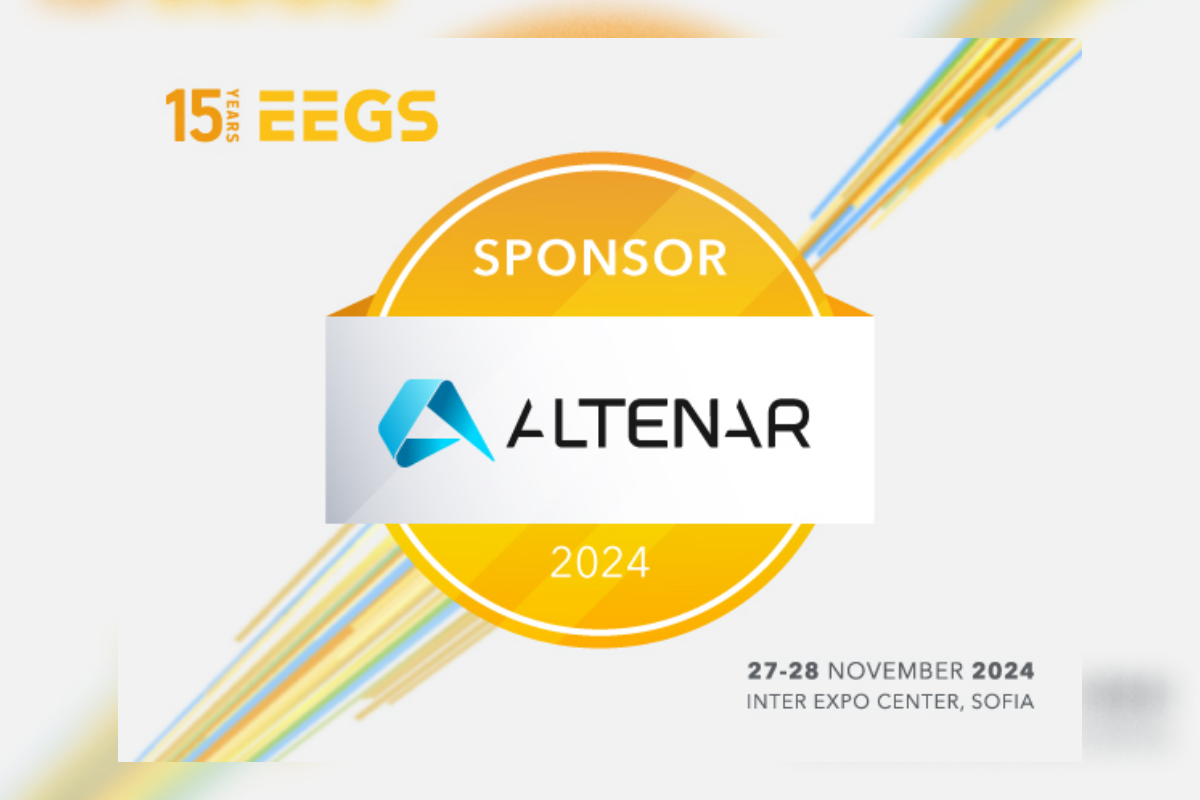Conferences in Europe
Online Gambling in Italy, Quirino Mancini (Tonucci & Partners) shares insights in an exclusive interview

Just last week the Italian gaming news agency Agimeg reported that Italy’s gambling regulator had so far received “less than 10 applications” for the new licenses, which cover mostly all gambling activities – sports and race betting, casino, poker, exchange betting, virtual sports, etc.
The licenses cost €200k apiece and are valid through 2022. Applicants must already hold an online gambling license in a European Union member state and boast annual turnover of at least €1.5m over the past two years. If applicants can’t meet these standards, they have to put up an additional €1.5m bank guarantee.
My latest interviewee is among the leading lawyers in Italy. Quirino Mancini is Partner and Global Head of Gaming & Gambling Practice at Tonucci & Partners.
Thank you for accepting this interview. My first question would be what are your expectations from the call for bids from online gaming operators? How will this change the Italian gaming industry?
Quirino: Judging by the first enquiries I have gathered since the announcement of the new licence tender, it would seem that notwithstanding the Italian market is already packed, there still are operators willing to enter it. This applies not only to B2C operators but to B2B ones too, even though unlike, most European regulated markets, the Italian licensing model does not require B2B operators to hold a local licence in order to offer their services, so if the trend is confirmed I reckon the Italian market will be somewhat re-shaped as a result of the advent of the “hybrid” operators (B2C+B2B).
The launch of the bidding process was expected much earlier. What hindered the launch, and does this have any effect on the process of bidding?
Quirino: The only reason for an otherwise inexplicable delay in calling the remote gaming licences tender is the quite populistic and very often ill-informed political pressure, notably across the whole parliamentary board, to restrict the gaming offer. Unfortunately the local gaming industry has so far proven unable to pull their acts together in terms of putting together a consistent, coordinated and effective effort to somehow redress the mounting wave of discredit and bias thrown at operators who are fully legal, legitimate, licensed and do pay taxes in Italy as if instead they were a bunch of offshore-based pirates ripping and abusing the poor Italian consumers.
There are several online gambling licenses which have already entered the Italian iGaming market and now only require the renewal of their licenses. My question is what is your opinion how difficult this process will be for the rest of the applicants?
Quirino: The licence tender process is all but difficult provided the prospective applicants duly meet the eligibility requirements and take timely action filing-wise. The real challenges for them, once licensed, are (i) going live in less than one full year bearing in mind the many technical peculiarities and specificities of the Italian remote gaming model that notably entails a 24/7 connection of the operator’s servers with the central control system ran by the regulator, (ii) having a good product fit and also customised for the local players, and (iii) having a clear vision for an effective and creative marketing strategy.
The delay in the online gaming licensing might have had an effect on the shared online poker liquidity agreement signed by Italy as well. What is your opinion regarding this problem?
Quirino: I believe that when it comes to shared international liquidity, the more newcomer operators join the party, the better it is for the players in terms of creating a sufficiently large pool.
It has recently been announced that Italy will not join the official start of the project. Will you, please share your ideas related to this issue?
Quirino: On 4 March 2018 general elections will be held in Italy. As already mentioned in a previous reply, at this time there definitely is too much focus, bias, propaganda, mis-information and pressure surrounding the gaming business for any sensible politician to want to be seen as the one who facilitated the offer of more gaming services to Italians, and because regulators take instructions and directions from the government and the parliament, you may easily figure out the rest of the story
To meet Quirino in person, make sure you register and attend Prague Gaming Summit 2018, held on the 29th of March at Andel’s by Vienna House Prague.
Interviewee profile:
Quirino Mancini is the global head of the gaming and gambling practice at Tonucci & Partners(www.tonucci.com), a top-ten Italian general practice firm with offices in Rome, Milan, Brescia, Padua, Florence, Tirana, Bucharest and Belgrad.
Quirino is one of the leading Italian gaming and gambling lawyers with a specialist practice of almost 20 years. He acts for Italian and foreign-based online and land-based companies operating in the Italian gaming market, advising them on legal, licensing, regulatory, day-to-day compliance and any other operational aspects connected to their activities. He also runs a bespoke matchmaking and business strategy service to provide clients with a customised type of assistance that includes also introduction and facilitation of dealings with the local regulatory authorities, banks as well as scouting and suitability checks on potential business partners.
Quirino is a regular speaker at most international gaming conferences and sits in the editorial board of various sector reviews and magazines.
Co-founder and editor of www.gaminglaw.eu, a pan-European information and commentary portal focusing on legal and regulatory issues under European and national gaming laws.
Secretary and fellow member of the Leadership Committee of the International Masters of Gaming Law (IMGL), a worldwide organisation gathering regulators, lawyers and advisors, in-house counsels and educators engaged in the gaming business. Fellow member of the International Association of Gaming Advisors (IAGA)
Conferences in Europe
Announcing the 2024 European Gaming Congress: A New Chapter in iGaming Excellence

HIPTHER, the leading Event Organizer for multiple GameTech industries, is thrilled to announce that the European Gaming Congress (EGC) is gearing up for an extraordinary 2024 edition, poised to redefine industry standards and foster unprecedented growth in the iGaming sector. Set against the backdrop of groundbreaking technological integration and extensive regulatory updates, this event is a must-attend for anyone involved in the gaming and tech industries.
Infinite Opportunities in iGaming
Scheduled to continue the esteemed “Via Infinita” mission, the 2024 European Gaming Congress promises to be an influential gathering, spotlighting the infinite possibilities within the realms of iGaming innovation. The event will focus particularly on iGaming operators and affiliates, offering insights into revolutionizing the affiliate industry, mastering the infinite game of SEO, and pushing the boundaries of marketing and communication. Additionally, the rapid evolution of fintech and the expansive applications of blockchain technology, dubbed ‘The Infinite Ledger’, will be key discussion topics.
A Convergence of Industry Leaders
EGC 2024 is set to host an array of influential speakers and attendees, including C-level executives, compliance experts, and government officials from across Europe. These industry leaders will come together to share their expertise on crucial compliance updates affecting key regions such as Poland, Italy, Spain, France, the Netherlands, Greece, the D-A-CH region, and the Nordics. This diverse gathering of minds will provide a comprehensive view of the latest regulations and best practices, ensuring all participants are at the forefront of the latest industry developments.
Celebrating Excellence: The EiGE Awards
In conjunction with the conference, the 2024 edition of the European iGaming Excellence Awards (EiGE Awards) will celebrate and honor the achievements of top players within the European iGaming ecosystem. This prestigious awards ceremony is a testament to the industry’s vibrant innovation and enduring excellence, providing attendees an opportunity to witness the pinnacle of iGaming achievement.
Networking and Growth
The European Gaming Congress will not only be a platform for learning and updates but also a dynamic space for networking and collaboration. The integration of gaming with blockchain, artificial intelligence, and fintech experts is set to create a multifaceted forum for strategic partnerships and growth opportunities.
Join the Forefront of Gaming Innovation
Do not miss out on the most anticipated iGaming event of the year. The European Gaming Congress offers a unique opportunity to connect with leaders from various sectors, explore new business opportunities, and be at the cutting edge of gaming technology and innovation. Whether you are a startup, an established operator, or a seasoned affiliate, EGC 2024 is where you will find the tools and insights to propel your business to new heights.
Join us at the European Gaming Congress 2024 and be part of shaping the future of the gaming industry. This is where the journey to infinite possibilities begins!
Conferences in Europe
Spanish Advertising Restrictions Struck Down: Learn More at the 2024 Gaming in Spain Conference

Earlier this month, Spain’s Supreme Court partially overturned, on procedural grounds, several far-reaching advertising restrictions. This ruling was the result of a suit launched by the trade association Jdigital against Royal Decree 958/2020. One outcome of the verdict is that Spain’s advertising landscape is once again in flux, at least for now.
The Supreme Court’s ruling will be a major topic at our upcoming Gaming in Spain (GiS) Conference on May 6, 2024, in Madrid.
In addition to the aforementioned ruling, the Conference will devote particular attention to the following topics:
- Cross-operator deposit limits in the Spanish market (expected from 2025)
- Central problem gambling detection algorithms, administered and overseen by the national regulator
- New products: how much regulatory room will there be for new (live) game products?
Agenda now available
The agenda for the 2024 Gaming in Spain Conference is now available here. We are very happy to announce a wide array of highly expert speakers including Spain’s leading gambling lawyer, Santiago Asensi, Jdigital Director General Jorge Hinojosa, MGA Games General Manager Jose Giacomelli, R Franco Digital and Operations Director Javier Sacristan Franco, EGBA Secretary General Maarten Haijer and many more.
Breakout sessions
In addition to the main program, the 2024 Gaming in Spain Conference will feature several compliance-related breakout sessions on e-money, compliance management, smart training solutions and KYC best practices.
If you are looking for information on specialized compliance topics and solutions, these breakout sessions are not to be missed.
Practical information
The 2024 GiS Conference will take place on May 6 at Castellana 81, located inside the BBVA tower, an iconic example of contemporary Spanish architecture in the heart of Madrid. The GiS Conference is scheduled one day prior to FIJMA24, Spain’s leading land-based gambling event. Combine two events with one visit. Registration for the 2024 Gaming in Spain Conference is now open. Don’t wait, register today.
Conferences in Europe
Altenar becomes General Sponsor of EEGS 2024

The acclaimed Eastern European Gaming Summit (EEGS) gladly welcomes Altenar, a leading sports betting software provider, as a General Sponsor for this year’s edition of the event. The conference will be held on 27th and 28th of November at the IEC, Sofia, Bulgaria. For another consecutive year Altenar joins the event as a major sponsor with total commitment for fostering innovation and growth in the gaming and entertainment industry, as a whole. This enduring long standing partnership has brought significant mutual benefits and opportunities for both parties and all event participants over the years.
Altenar is delivering best-in-class solutions for licensed operators around the world. Ranging from a standalone sportsbook product to the provision of a turnkey sportsbook solution, Altenar offers proven stability coupled with a flexible and personalised service.
Launched in 2011, Altenar powers hundreds of online sports betting sites, while their self-service betting terminals and mobile app help ensure they meet all operator needs, with an exponentially growing client base in more than 30 countries.
Altenar COO Dinos Stranomitis said: “In Altenar we consider EEGS and BEGE as a key event to establish connection with East and Southeast Europe. Considering that Bulgaria is playing a key role in that region, our presence is a must. See you in Sofia.”
Altenar is an invaluable partner, thus contributing to the success and vibrancy of EEGS itself. The continued support highlights a shared commitment to excellence and progress within the industry, making this year’s event an essential platform for associated industry luminaries and entrepreneurs to explore the latest trends and opportunities in gaming, entertainment and hospitality in general.
The Eastern European Gaming Summit (EEGS), the premier conference of the region, provides a dynamic platform for industry leaders, innovators, and entrepreneurs to connect, collaborate, and explore the latest trends and opportunities shaping the gaming and entertainment landscape.
No doubt you wish to position your company alongside the Conference and exploit our expertise.
-

 Conferences in Europe7 days ago
Conferences in Europe7 days agoSpanish Advertising Restrictions Struck Down: Learn More at the 2024 Gaming in Spain Conference
-

 Balkans7 days ago
Balkans7 days agoMaking a Bang in Bulgaria! Hacksaw Gaming goes live with Alphawin
-

 eSports7 days ago
eSports7 days agoCopenhagen Major 2024 – Betting Overview
-

 Compliance Updates7 days ago
Compliance Updates7 days agoIOC and UEFA host joint betting integrity workshop
-

 Latest News7 days ago
Latest News7 days agoInspired steps into Spring with its latest line up of slots: Space Invaders Win And Spin, Big Big Fishing Fortune and Piggy Bandits
-

 Latest News7 days ago
Latest News7 days agoWeek 15/2024 slot games releases
-

 Gaming7 days ago
Gaming7 days agoSortium Revolutionizing Video Game Development with Groundbreaking AI Tools Launch and $4 Million+ Funding Round
-

 Latest News7 days ago
Latest News7 days agoAltenar appoints Sam Hill as Sales Director










































